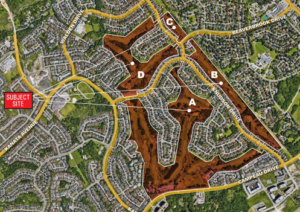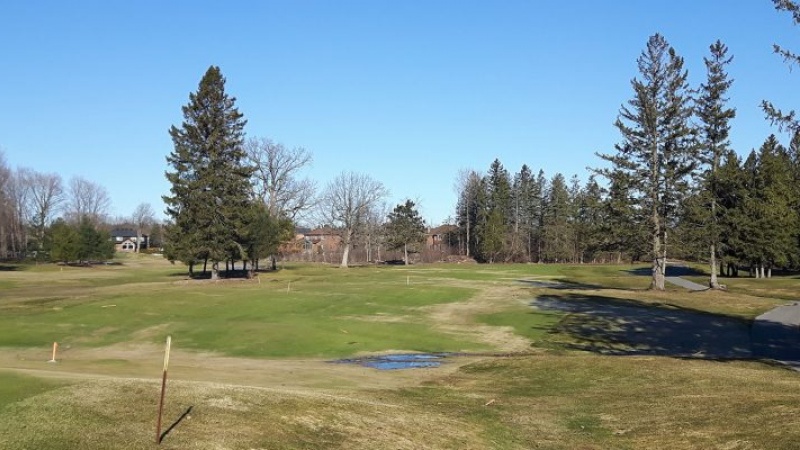Residents near a Kanata golf course that has been earmarked for a housing development are vowing to keep fighting to stop the project after the Supreme Court of Canada said this week it would not hear the City of Ottawa’s appeal in the ongoing case. The decision clears the way for ClubLink, which has owned […]
Get Instant Access to This Article
Become an Ottawa Business Journal Insider and get immediate access to all of our Insider-only content and much more.
Critical Ottawa business news and analysis updated daily.
Immediate access to all Insider-only content on our website.
4 issues per year of the Ottawa Business Journal magazine.
Special bonus issues like the Ottawa Book of Lists.
Discounted registration for OBJ’s in-person events.
Click here to purchase copyright and share this article.
Residents near a Kanata golf course that has been earmarked for a housing development are vowing to keep fighting to stop the project after the Supreme Court of Canada said this week it would not hear the City of Ottawa’s appeal in the ongoing case.
The decision clears the way for ClubLink, which has owned the Kanata Golf and Country Club since 1996, to pursue its plan to build 1,480 housing units on the site. The firm says the golf course operation is no longer financially viable and wants to partner with Minto Communities and Richcraft Homes to redevelop the 71-acre property.
However, opponents of the plan argue it violates a 1981 agreement stipulating that 40 per cent of the Kanata Lakes property, including the golf course, must be maintained as green space.
The golf course has been at the centre of legal disputes for more than five years. The city took the developers to court in 2020 in a bid to stop the project, and an Ontario Superior Court judge subsequently declared the agreement remained “valid and enforceable.”
ClubLink appealed that ruling, and the Ontario Superior Court later reversed its decision. Earlier this year, the Court of Appeal for Ontario dismissed the city’s appeal of the lower court’s ruling.
The Supreme Court did not provide any reasons for its decision this week. In a memo to councillors Thursday, city lawyer Stuart Huxley said the ruling marks the end of the long-running legal fight.
The proposal has stirred up opposition among nearby residents who fear the development will disrupt stormwater management and leave the surrounding community at risk of severe flooding.

The Kanata Greenspace Protection Coalition, a group of concerned local residents, said Thursday it was “deeply disappointed” by the Supreme Court’s decision not to hear the case.
“How can a municipality enter into a contract with any party to build, manage, or secure long-term assets or property if it can be violated at any time?” coalition chair Barbara Ramsay said in a statement. “The Supreme Court is the place to settle confusing legal decisions. It’s truly mind-boggling that the court won’t hear this case.
“While this ends the six-year legal fight to defend the (1981 agreement), it is not the end of the road. As we’ve said repeatedly, this is a complex issue and we will continue to pursue every avenue to stop ClubLink, Minto, and Richcraft.”
The developers still have some hurdles to overcome if the project is to proceed.
In 2020, the city’s planning committee rejected the proposal after a city staff report said the proposed development was “not compatible with the existing neighbourhood in terms of lot layout and setbacks” and did not match the scale of development in other nearby streets.
The report also listed several other reasons for rejecting the plan, including “several unresolved issues related to creating drainage services to ensure safe, well-drained sites.”
In Thursday’s memo, Huxley said the city “is not prepared to alter any existing easements to permit the redevelopment to take place,” adding the developers would still need approval from the National Capital Commission for the stormwater outlet.

